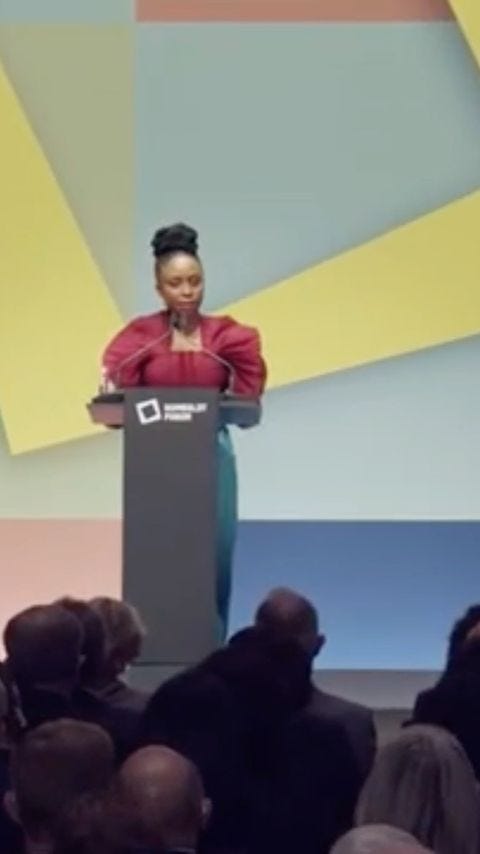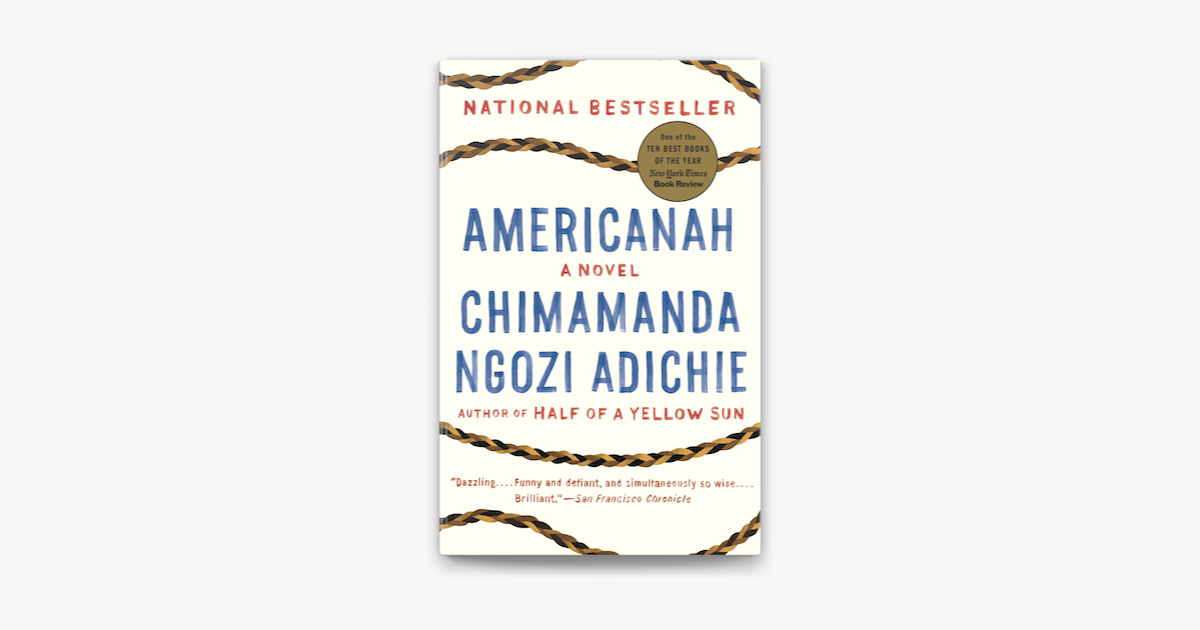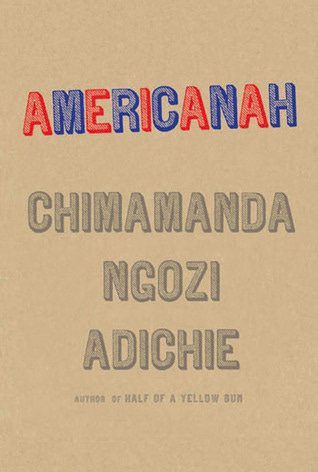Books have this magic quality about them: they can transport you to another world. Chimamanda Ngozi Adichie will seemingly transport you to her own particular Nigeria, London, or United States.
With her rich writing and thoughtful social commentaries, Chimamanda is one of the best modern writers out there. She has published seven books, all of them with great success. Her first novel Purple Hibiscus published in 2003 won the Commonwealth Writers' Prize for a best first book.
She has since received many praises and awards for her poems, fiction, and non-fiction books.
My first contact with Adichie was not through her books, though, but through her TED talk: The danger of a single story. In a nutshell, it sums up her entire character. She believes that having different stories from a diverse group of writers is crucial. And that's what she stands for when she writes herself. She argues that understanding and empathy can be developed by having multiple stories available to everyone, as well as a better world in general.
Throughout the years, I have watched several of her speeches and interviews. She is just incredibly intelligent and speaks so calmly. Even during a hideous interview in France where she is asked if there are bookstores in Nigeria, she keeps her calm and answers the question impeccably.
Any topic is easy for her to explain and she has great rhetorical skills. Listening to her is always a delight. Here are some of her books:
Americanah
Americanah was the first book I read from her and is probably my favorite. I could relate to the main character's feelings of alienation from living in a different country.
Americanah is a novel for which she won the 2013 U.S. National Book Critics Circle Award for fiction. It tells the story of a young Nigerian woman, Ifemelu, who immigrates to the United States to attend university. The novel traces Ifemelu's life in both countries. It was Adichie's third novel, published on May 14, 2013. A television miniseries, starring and produced by Lupita Nyong'o, was in development for HBO Max, but then was later dropped.
As teenagers, Ifemelu and Obinze fall in love at their secondary school in Lagos. When Ifemelu moves to the United States to study, she faces racism for the first time, learning what it means to be a "Black Person". Despite his desire to join her in the United States, Obinze is denied a visa following 9/11. He moves to London, eventually becoming an undocumented immigrant after his visa expires.
Obinze later returns to Nigeria and becomes a wealthy property developer in the newly democratic country. Ifemelu enjoys success in the United States with her blog about being a Non-American Black. As Ifemelu returns to Nigeria, the two contemplate if they should revive their relationship given their diverging experiences and identities.
Half a Yellow Sun
Half a yellow sun depicts one of the darkest periods of recent African and world history. Following two coups and turmoil in 1967, about a million Igbos returned to the south-east of Nigeria, and the Republic of Biafra was created under military officer Emeka Odumegwu Ojukwu.
The Nigerian government declared war to take back the territory and after 30 months of fighting, and hundreds of thousands of deaths - mostly due to hunger, Biafra surrendered. On 15 January 1970, the conflict officially ended.
Being of Igbo descendency, Chimamanda tells the story of three characters swept up in the turbulence of the 60s. Being one of them Olanna, a rich girl from Lagos that falls in love with a professor, loosely based on her own mother.
Adichie brilliantly evokes the promise and the devastating disappointments that marked this time and place, bringing us one of the most powerful, and emotional pictures of modern Africa.
The perils of a single story
It's a breath of fresh air to have someone coming from somewhere other than the US and UK and making it in the literary world. Bringing new perspectives and stories. (Even though, she did take her studies to become a writer in the US).
As Chimamanda says in her TED talk, stories are powerful. It's not by accident that most of the stories available around the world are based on western characters. But there's a risk there. Risk of seeing people from certain regions in a single way, creating stereotypical narrative representations of them. When in reality, there's so much diversity everywhere.
You would never think that everyone in the US is rich as the Kardashians, but we do believe all Africans (a whole continent!) live in dangerous zones. That's because it's the story we have been shown over and over again.
At nineteen, when Adichie first moved to the United States, she encountered how single stories had impacted the opinions of the people around her. Her American roommate was surprised that Adichie could speak English and use a stove because she had only a single story of African people that positioned them as backward and suffering.
When she talks about a single story, Adichie is referring to simplified and stereotyped narratives that reduce a complex group of people to a narrow set of attributes and experiences. It is easy to accept these simplified narratives as a way to avoid examining complex issues in more detail; taking into account nuance and contradictions can be a challenge. Stories, Chimamanda argues, are the best way to tease apart these stereotypes and see the truth that lies beneath them.
Reading from different perspectives allows us a broader understanding of other regions. It brings us closer together. Chimamanda shows that it is possible to do that, and we need more of it.
What to watch?
Chimamanda Ngozi Adichie on Storytelling - Chatham House 2018
What to read?
Americanah. We follow Ifemelu, transforming into a confident woman through adolescence and early adulthood. Dwelling on her fears and insecurities in a foreign country where she faces cultural differences and is first confronted with being black.
What to binge?
I may destroy you. As described by The New York Times "the perfect show for an anxious world." Written, created, and led by Michaela Coel I may destroy you portrays the life of a British woman, daughter of Ghanian immigrants, navigating life in her late-20s. She is an internet celebrity turned writer who is struggling to write a second book and finds herself in a horrible situation after a night out with friends in London.
This is one of the best shows from the past years and should have won the Emmy. There, I said it.










